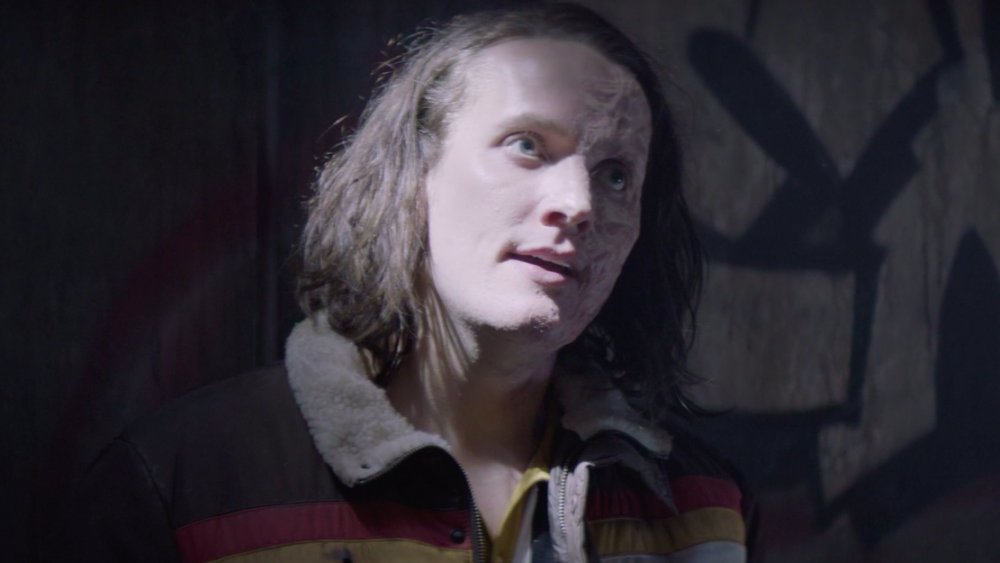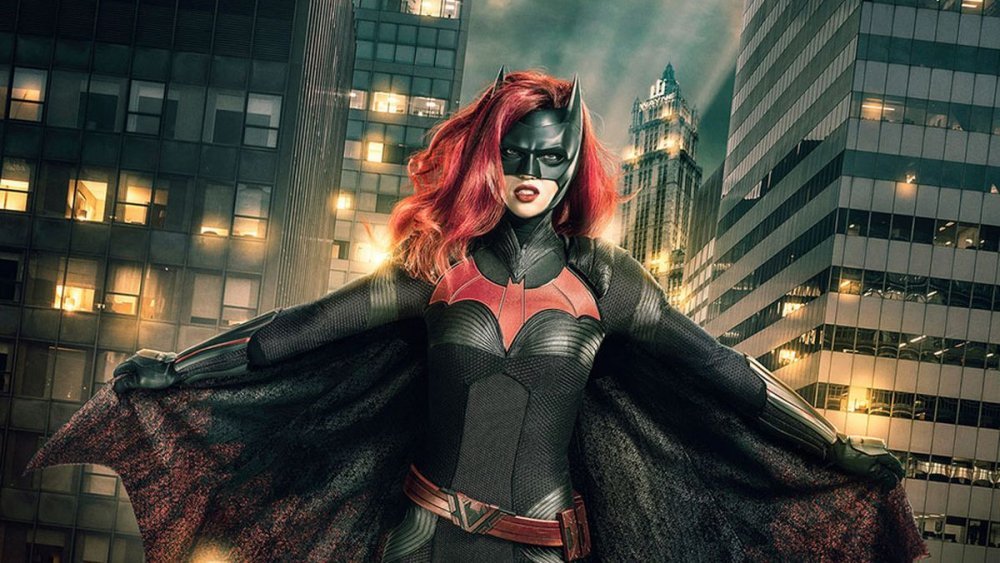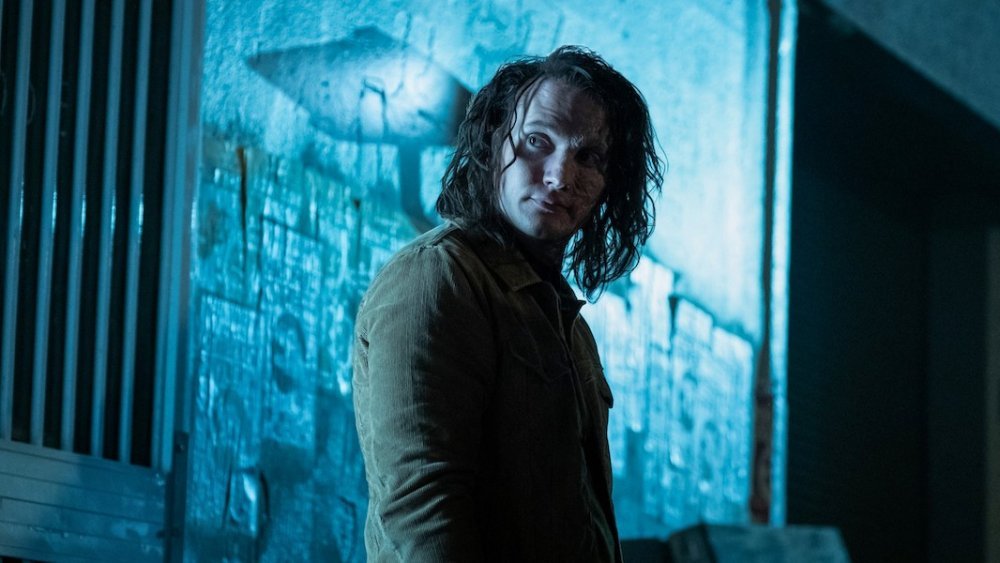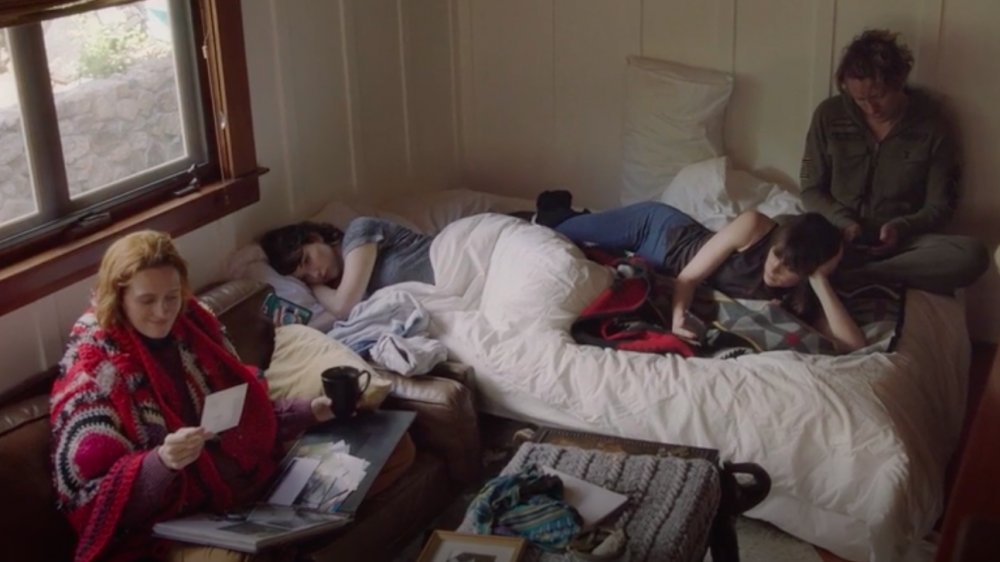Actor Sam Littlefield Talks Batwoman, The DC Universe, And Indie Film Mother's Little Helpers - Exclusive Interview
Some might say Sam Littlefield caught his big break when he was cast as the villainous Mouse on the CW's Batwoman, which premiered in 2019. Having come from indie films and a small part on the CW's short-lived series The Messengers, Littlefield was a relative unknown before taking the role. But now he's forever cemented in the DC Universe, nestled alongside such high-profile supervillains as the Joker and Lex Luthor.
As Mouse, the alter ego of seemingly mild-mannered Johnny Cartwright, Littlefield portrayed a complex character who's able to mimic anyone's voice, making him a master of impersonation. Together with childhood friend and evil accomplice Alice (Rachel Skarsten), who just so happens to be the kidnapped twin sister of Batwoman (Ruby Rose), they terrorize Gotham City as the leaders of the Wonderland Gang. That is, until Alice decides she doesn't want a sidekick anymore.
The role may prove to be pivotal in Littlefield's career, as another one of his projects, indie film Mother's Little Helpers, also garnered some attention. The story of four estranged siblings coming together to say goodbye to their dying burnout of a mother isn't what you'd expect, as the emotional rollercoaster ride offers as many laughs as tears. Also starring Breeda Wool (UnREAL, Mr. Mercedes) and Milana Vayntrub (This Is Us, Marvel Rising), the film premiered at South by Southwest in 2019, and was released to streaming platforms in 2020.
Looper exclusively spoke to Littlefield about his role on Batwoman and in Mother's Little Helpers, discussing what it's like to create a character from scratch and become part of the DC Universe.
The season one finale of Batwoman offered lots of drama, on screen and off
How did the COVID-19 quarantine affect the filming of the season one finale of Batwoman?
Well, we were still filming in Vancouver. We had one more day of filming before they closed the border, and we finished at like 8:30 in the morning and I was so delirious. They wanted to put me on a plane at noon, but I wasn't really comfortable getting on a plane at that point. For some reason I thought that it would be smarter to get on a Greyhound bus. Once I crossed the border into Seattle I decided to quarantine there with my sister for about a month.
During that time, I broke my front tooth and I made a movie with my nephews on my iPhone. Then I took a massive SUV down the coast, sleeping at rest stops along the way, to get to California. It was a pretty epic journey — like an Indiana Jones quest — to get back to my house. Now that I'm here, it's just about acclimating and creating a new normal.
What are your thoughts on Ruby Rose leaving the show?
Ruby carried the responsibility of being the first lesbian superhero on television, and I think she did a great job at it. Being the first "anything" is no small feat. She was always very kind and professional with me. I respect her decision to leave the show, as I'm sure it wasn't an easy one for her to make. She has to do what's best for her.
And how do you feel about your character Mouse being killed off in the finale?
Alice clearly poisoned him, but I'd like to think he will be haunting her in one way or another.
Joining the DC Universe was both exciting and intimidating
What's it like being part of the DC Universe?
It's cool. I'm bummed because I was just about to start doing Comic-Cons. I was really looking forward to that. Now that we're in this new normal, I don't really know how that's going to end up unfolding. But it's a little bit intimidating because people have so many expectations about the DC Universe and how it's going to be presented. I was kind of in a unique position where my character Mouse wasn't presented in the comics and was actually developed for the television series. There was something kind of freeing in that, but it's also intimidating because there was no source material to draw from, other than some loosely based characters that they pulled together to manufacture Mouse. But it was a liberating and somewhat scary cocktail trying to basically create this character out of thin air.
Were you allowed to help mold his personality?
I was blessed with a very rich backstory that the writers had concocted. The relationship that Alex and Mouse had in that basement [as children] is incredibly informative. People always talk to me about the violence and how Mouse is some kind of psychotic killer. I never really thought in that way. To me, when he does these acts of violence, it seems like he might as well just be in the basement playing video games or Barbies versus G.I. Joes. To me, the murder aspect of it doesn't even seem real to him.
Our showrunner, Caroline Dries, is incredibly accessible. I was always so amazed. I'd send her this big, long email and she always got back to me within five minutes with really thoughtful perspectives and ideas on things. Any ideas or feedback that I ever had throughout the course of shooting was always met with totally open arms from the entire creative team. I think that lends itself to what we created for Mouse.
What appealed to you about the role?
If I look back, my whole career has been a long strand of very complicated characters, most of which are villains in some way, shape, or form. In that regard, I feel like that has been sort of a running theme throughout. Mother's Little Helpers was actually kind of a departure for me in a lot of ways. I was able to play someone that was closer to myself than I think I ever really have before. That said, though, it was intimidating entering this series that has these huge, big-budget crane shots and explosions and all of those things. If you really think about it, it can make you not want to get out of bed because it's just so much money and so many people behind the scenes pulling it all together — the pressure of trying to meet the moment can get in your way. But at a certain point you kind of blow it off, put on the makeup, and just get in and play.
Where did you draw inspiration from when it comes to Mouse?
The first time I put on that makeup, I remember looking in the mirror and just feeling so sad about a little boy having his face totally marred and being told that he's not fit for society. It's so tragic. Life is hard enough just trying to figure out who you are in this world and how to get through it. When I think about that and about the relationship that Mouse and Alice develop over the course of their time in that basement, the two things I connect to most are the trauma and experience of trying to overcome that trauma.
Is there a reason you gravitate toward playing bad guys?
I don't know. You'd almost have to just ask casting directors why I keep getting those roles. I think my voice plays a part in it. I've kind of got a voice that lends itself to [villainous roles]. I don't really care, to be honest. I just love stories. When it comes to a character, my voice seems like one aspect that helps tell the overarching story. But it's just one ingredient to the whole soup.
What TV shows and movies inspired you and sent you down your career path?
Roswell was really huge for me. I don't know why, I guess I've always sort of felt like an alien in my own right. In a lot of ways acting has always sort of felt like this way of putting on different hats to try and find a human that seems like it fits the best for me. But the Roswell teenagers in high school, when I was a kid, it just really moved me. And then there was The Leftovers, which I was really fortunate to be on. I loved that series, and to have been on that show that I thought was just so beautifully put together was a real highlight in my life.
Sam Littlefield channeled his own life into his improvised Mother's Little Helpers role
The quarantine also affected the release of Mother's Little Helpers...
It's accidentally way more relevant than we ever meant for it to be. Maybe in a strange way it's a perfect way for this film to come out on digital in people's homes [instead of in theaters] during quarantine because it really speaks to the experience of what it is. Hopefully people find some kind of comfort and see their own experience reflected back at them through our movie.
You filmed it in eight days with no real script. What was that like for you as an actor?
It was really challenging and exciting. We were lucky enough to have [actor and director] Kestrin Pantera at the helm. She was really a proponent of us being the specialists of our characters. Whenever we fought for anything, she always met it with "Yeah, OK, try it." She very much has an editor's mind, so she was always thinking about how she could put it in a format that's editable and can be of service to the story. It was an experience unlike anything else I've ever had. It was challenging in ways that I haven't been challenged before. With the improvisation, the process we worked with was kind of like we would improvise, and after each take it scripted itself to where we knew what we were saying in many of the final takes. It was just a very unique and enjoyable experience. I hope to work with those guys more in the future. It was a makeshift family, in a way.
The film is based on a true story?
Loosely based on a true story that is personal to Kestrin and her family. She was published in the New York Times about a celebration-of-life party that she threw for her friend who was passing on. This film doesn't have much to do with that, but I do think that Kestrin firmly believes in the power of celebration. She really wanted to push the envelope and find the laughter and the joy in an experience that is otherwise just really devastating.
Was any part of your improv based on things that have happened to you?
Yes, I would say so. I have a unique relationship with my mother, who was a Deadhead herself. I've gone to over 30 Grateful Dead concerts in my life, and she's been to over 300, going to Germany and China and all over Europe. I can kind of relate to the experience of having a mother who, I guess, lives a little bit on another realm. Also, I have three siblings, with one sister. I always tell my sister I just split her up into three different people [representing the three other siblings in the film] and that was how I was able to get the whole dynamic together in my head.
Your role on Batwoman and your role in Mother's Little Helpers are on the opposite end of the spectrum in terms of big-budget versus indie. Is there a direction you want to go in? Are you excited about a more mainstream path?
I agree, they could not be more different in every aspect, shape, and form. I don't know, I've always made my own indie films all the way back to my early twenties, they've always felt so kind of disparate; my relationship to my own personal indie filmmaking and the television shows that I've worked on. It's been a really nice blend to get to have both of these experiences in the same year, where they're both getting visibility at the same time has been really wonderful. They both offer different things. I just work, you know what I mean? Any kind of an experience that can help me grow and show me something new about myself and about the world, I welcome it. I don't know where my career is going to go. I just hope that it's somewhere interesting.



